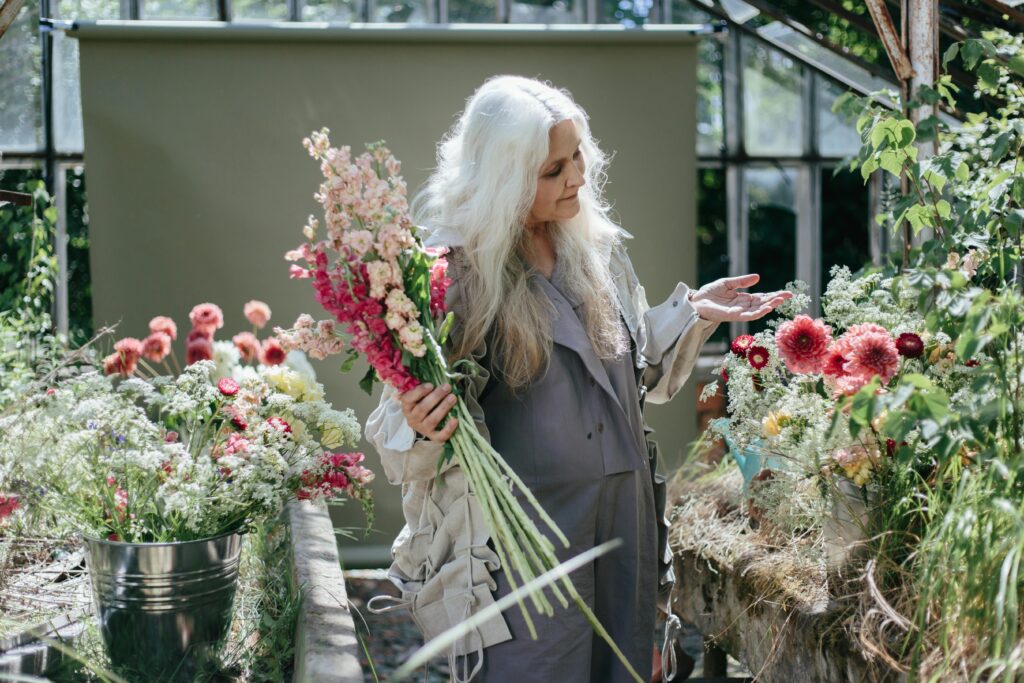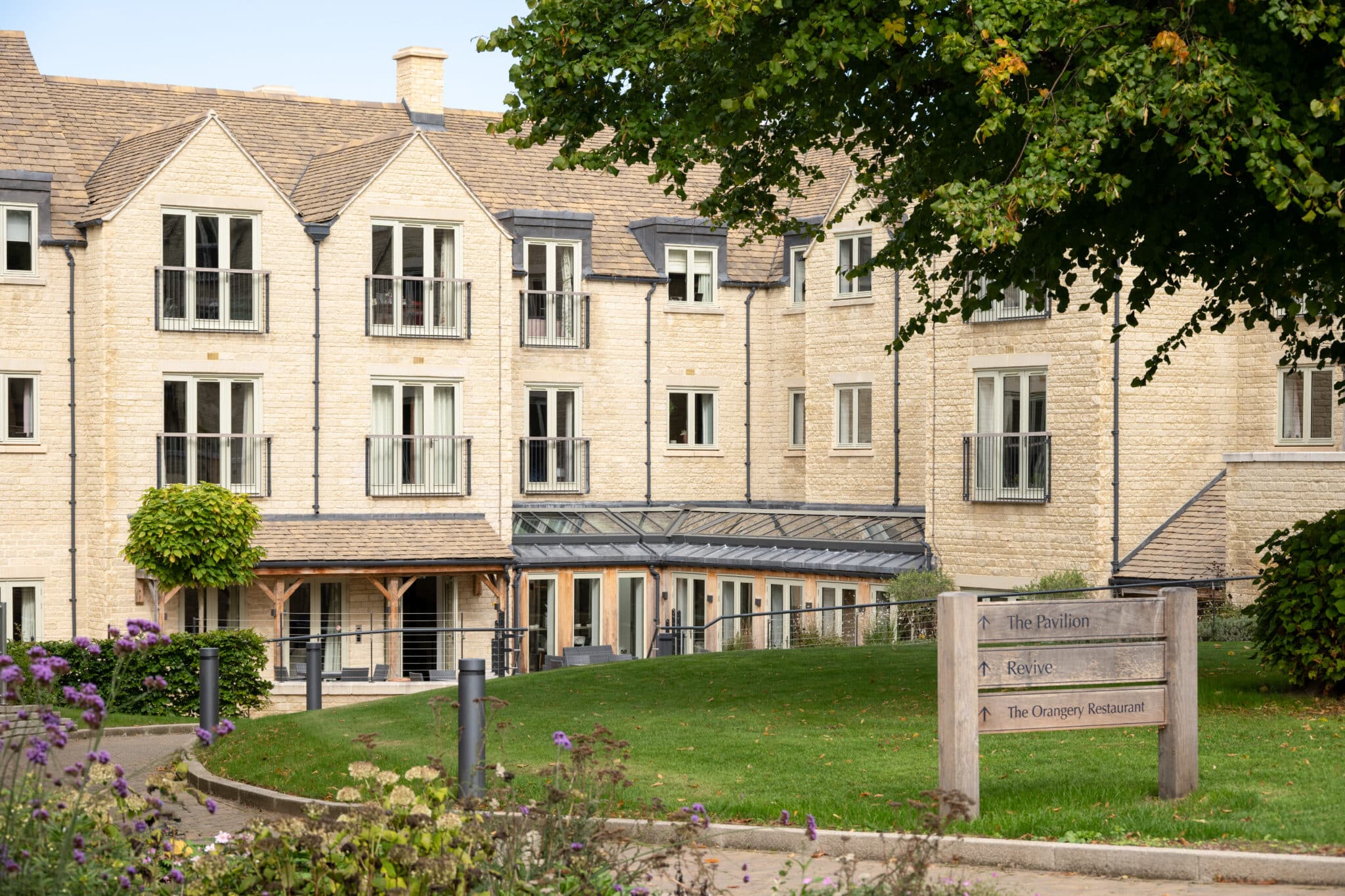
Gardening can be a very satisfying outdoor hobby for both younger and older people.
It awakens our senses, links us to the environment and provides many physical and mental benefits, especially for the elderly. Gardening in retirement can enrich our lives by providing a sense of purpose and joy.
It is a great way for retirees to maintain flexibility and obtain moderate intensity cardio workouts. At Rangeford Villages, our gardens have something to offer throughout all seasons and they always look very inviting for owners and visitors.
Some of our owners get involved with the gardening on site and can help the gardeners whenever they want.
Here we talk about some of the main benefits of gardening in retirement:
Keeps you active and encourages you to spend time outside – Gardening keeps you active and this is one of the most important things that you can do when it comes to healthy aging. Being outside helps to increase your Vitamin D levels and helps improve your concentration.
Good for the hands – With all the planting, seeding and plucking, you can help to strengthen your hands. It is a really good workout that helps to keep your fingers and hands in tip-top shape to counter any rigidity. It also helps to improve your balance and coordination, which results in less chance of falls and increases your ability to walk for longer distances.
Therapy for dementia – Gardening has widely been used as a form of rehab for those who are suffering from Dementia or Alzheimer’s disease. This is especially true if it was hobby and passion that brought you joy before Alzheimer’s. Reigniting it can be really reassuring and allow you to recall the passion that made you joyful in the past.
Encourages healthy eating – We all know how important healthy eating is and often even more so in retirement as we potentially move less. Gardening can help to create a prolonged habit of eating adequate fruits and vegetables.
Enhances your mental health – Gardening has been shown to help lower your stress hormones which can be generated by the body. When you are gardening you automatically experience a more relaxing atmosphere and by focusing on what you are doing you become mindful.
Increases your social interactions – If you join in with the gardening in our retirement villages, you will be part of a community of people who have the same interest. You can also learn how to improve your gardening skills from more experienced gardeners!
How can you get involved with gardening at our retirement villages?
Speak to our staff and they will put you in touch with the on-site gardener and you can get involved as much or as little as you like! To aid owners, we have created communal herb planters at chest height, so they are easy to pick from and owners don’t have to bend down too much to reach them.
We are here to help you continue with your current hobby or start this new lovely hobby!
Benefit Breakdown of Gardening for Retirees
Physical and Mental Health Benefits
Gardening is a popular hobby that offers numerous physical and mental health benefits, making it an ideal activity for retirees.
Regular gardening can help reduce stress and anxiety, improve mood, and even alleviate symptoms of depression. The physical activity involved in gardening can also help improve cardiovascular health, strengthen bones, and boost flexibility.
Furthermore, being outdoors and surrounded by nature can have a profound impact on mental well-being, reducing feelings of loneliness and isolation. Engaging in gardening allows retirees to connect with the natural world, providing a sense of purpose and accomplishment that enhances overall mental health.
Designing a Retirement Garden
When designing a retirement garden, it’s essential to consider the individual’s needs and abilities.
A garden designer can help create a functional and beautiful space that meets the retiree’s requirements. Raised beds, wide paths, and easy-care surfaces are just a few features that can make gardening more accessible and enjoyable. Raised beds, for instance, reduce the need to bend down, making planting and harvesting easier on the back and knees.
Wide paths ensure that the garden is easy to navigate, even for those with mobility aids. A well-designed garden can also incorporate a vegetable patch, allowing retirees to grow their own organic produce and enjoy the benefits of fresh, healthy food.
With thoughtful planning, a retirement garden can become a sanctuary that provides both beauty and sustenance.
Gardening Communities and Resources
Joining a gardening community or seeking out local resources can be a great way for retirees to connect with like-minded individuals and gain valuable knowledge and advice.
Many communities offer gardening clubs, workshops, and classes, providing opportunities for socialization and skill-building. These gatherings can be a wonderful way to make new friends and share gardening tips and experiences. Online resources, such as gardening forums and blogs, can also offer a wealth of information and inspiration for retirees looking to start or maintain a garden.
By tapping into these resources, retirees can continually learn and grow in their gardening journey.
Seasonal Gardening Tips
Gardening is a year-round activity, and each season presents its own unique challenges and opportunities. In the spring, retirees can focus on planting flowers, vegetables, and herbs, while summer is ideal for maintaining and harvesting crops.
Autumn is a great time to prepare the garden for the colder months ahead, while winter is perfect for planning and preparing for the upcoming growing season. By following seasonal gardening tips and advice, retirees can ensure their garden remains healthy and thriving throughout the year.
Embracing the rhythm of the seasons can make gardening a fulfilling and ever-evolving hobby.
Getting Started with Gardening
For retirees who are new to gardening, getting started can seem daunting.
However, with a little planning and preparation, anyone can create a beautiful and functional garden. Begin by choosing plants that are easy to care for and suitable for the local climate. Consider incorporating raised beds, wide paths, and organic matter to make gardening more accessible and enjoyable.
Raised beds can simplify planting and are low maintenance, while wide paths ensure easy movement around the garden. Organic matter enriches the soil, promoting healthy plant growth.
Don’t be afraid to seek out advice and guidance from local gardening communities and resources and remember to start small and gradually build up to more complex gardening projects. With patience and persistence, gardening can become a rewarding part of your retirement life.



